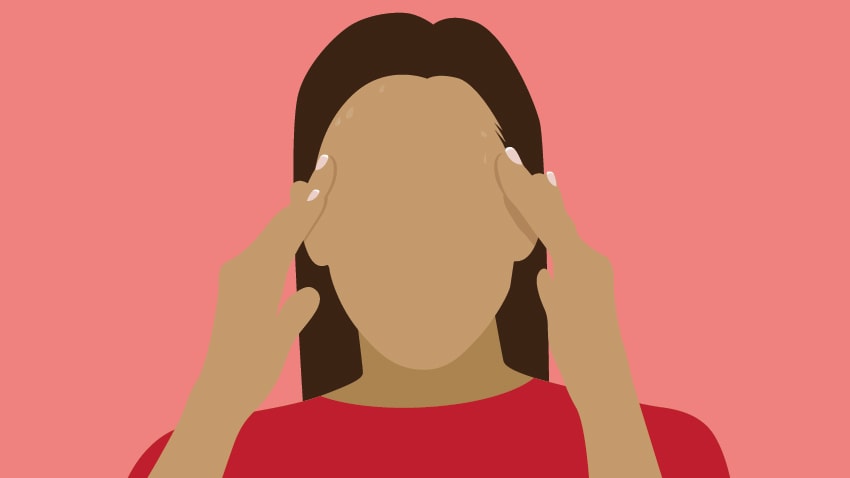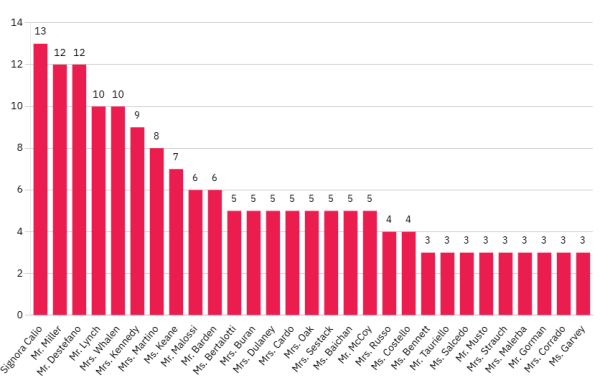Are We All Too Anxious?
With school-related pressures on the rise, researchers have found that anxiety rates have also increased in teenage adolescents. According to popular magazine and website, Psychology Today, twenty-five percent of children aged 13-19 will or currently have mild to moderate anxiety. Many of these children report their anxiety issues being a result of an overload of schoolwork and parental pressures.Understanding this heightened issue, the causes and solutions are crucial, so The Eagle’s Cry spoke to students and faculty in Bethpage High School with firsthand experience with this epidemic.
With an increasing number of students taking AP courses and exams, no wonder stress and anxiety levels are rising. Schoolwork almost always reaches beyond the classroom. Teachers tend to give homework multiple times a week, if not every day. For students who balance sports, clubs, work, and school, doing homework often adds onto the stress. In a study conducted by The Stanford Graduate School of Education, 56% of students reported “excess homework” as a predominant source of stress. These assignments results in a decrease of leisure time, sleep, and an increase in anxiety.
So what are the most prominent reasons students get stressed?
“I think that not having enough time for everything you want to do contributes to anxiety,” Alexis Enanian, a senior, explained.
“School and work,” Matthew Salerno, a senior, suggested.
When parents and teachers put pressure on teenagers to keep a job, complete school work, earn good grades, and participate in school clubs and sports, students get overwhelmed. By the time they get home from school, they barely have enough time to do school work and get to bed on time. According to various medical websites, a teenaged student needs about 9 ¼ hours of sleep every night to perform properly. BHS students get significantly less—some even as little as five hours a night.
Anxiety affects students here at Bethpage High School.
Gabriella Shamah, a junior, said, “I’ve had to leave many times midday due to the stress of school work making it hard for me to function.”
Not being able to function is a common side effect of things such as stress and anxiety. Other symptoms include difficulty concentrating, restlessness and even nausea. Gabriella wants others to understand that there is a difference between anxiousness and anxiety disorder, “People think that being anxious and having anxiety are the same. Being anxious over a test and having anxiety follow you in your daily life isn’t the same thing.”
So how does one know if they truly suffer from generalized anxiety disorder? According to Mayo Clinic, the first thing to be aware of is how long your anxiety lasts. If it comes about right before a big presentation and then goes away once you’re finished, the likelihood of you having an anxiety disorder is very slim. However, if your anxiousness seems to creep up on you, even in moments where you aren’t worried about something in specific, you may be at risk for having an anxiety disorder. Ongoing dizziness, panic attacks, difficulty breathing and trembling may also be an indication of a larger problem.
Luckily, being diagnosed with an anxiety disorder is not something you have to go through alone. In fact, many peers and even your parents may suffer from the same exact thing. It is never too late to ask for help, and there are many solutions. If you are looking for someone to help you, talk to you and offer coping mechanisms, a therapist may be the perfect fit for you. Being able to confide in someone often helps put patients at ease. In some cases, medication will be prescribed. Medication is beneficial and may be used long term or short term, but it is always important to talk to your doctor about the right options for you. There are also many things you can do at home, such as yoga and meditation.
Social worker Mrs.Glassman said, “Being a teenager is hard. Dealing with things like stress and anxiety isn’t cut and dry. What works for someone else may not work for you, and that’s okay. It’s important you find the right strategy for you.”
There is never any shame in asking for help if you believe you may be suffering from symptoms of anxiety disorder.
For those students who are simply just stressed, you may find it helpful to talk to your parents or teachers about the emotional strain you feel. Some teachers may even push back due dates for you or offer you advice on how to manage time. Your parents may decide to stop putting so much pressure on you to get good grades. For additional support, the guidance office is always open to help guide you through your school years.
And remember, sleep is one of the most important things and you need to get at least eight to nine hours every night to perform your very best. We are still kids despite what some of our elders may tell us. We are still growing and sometimes we need to put our mental health before anything else.

Sara Northgard is a junior at Bethpage High School who began writing for The Eagle’s Cry just this year. Sara didn’t always live in Bethpage, in fact,...








